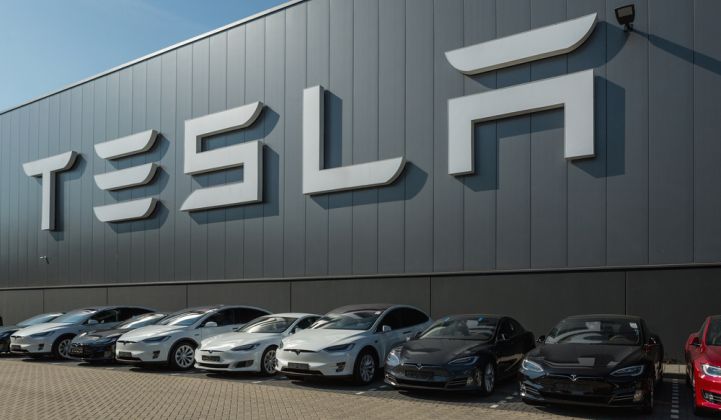Earlier this month, Tesla announced plans to acquire Maxwell Technologies, an established, 380-employee ultracapacitor and storage materials firm for $218 million in an all-stock deal. It’s easy for a transaction of this sort to get lost in the Tesla media cycle.
Elon Musk was once intent on studying ultracapacitors at Stanford University, long before Tesla was even a gleam in his eye. Apparently, Musk is still charged up on the technology.
Maxwell’s total revenue was $91.6 million in the first nine months of 2018, with losses of $30.2 million. Revenue in 2017 was $130.3 million with losses of $43.1 million.
So why is Tesla paying above book value (but still not enough, according to some investors) for a money-losing firm (here’s Maxwell’s SEC filing)?
Does Tesla want ultracapacitors?
Maxwell’s core business is ultracapacitors, the wide-temperature-range, high-power-density energy storage component that can rapidly charge and discharge. Also known as supercaps or electronic double layer capacitors, ultracapacitors are geared for high-power and high-cycle applications.
Batteries use a chemical process to store energy, while ultracapacitors store a static electric charge — physically separating positive and negative charges.
Maxwell’s ultracaps deliver peak power as well as regenerative braking, voltage stabilization, backup power and hybrid stop/start. Ultracaps are also used to power the pitch control adjustment in wind turbines during sudden wind speed changes, since replacing batteries at 500 feet above the ground is tricky.
In a previous interview, Maxwell’s CEO estimated that there is $5,000 worth of ultracaps in the typical wind turbine and $15,000 per electric bus. Maxwell declined to respond to GTM to update those figures.
Or dry electrode technology?
But Maxwell’s allure might not be its ultracapacitors — it might be the dry electrode technology developed by Maxwell that really intrigues Elon Musk.
The “dry” in “dry electrode technology” refers to an ultracapacitor manufacturing process that Maxwell claims can improve battery costs, performance and lifetime across a variety of lithium-ion battery chemistries.
Maxwell states, in a release, that its dry electrode manufacturing technology, historically used to make ultracapacitors, is “a breakthrough technology that can be applied to the manufacturing of batteries.”
A white paper from Maxwell claims that its dry battery electrode (DBE) coating technology can be used with “classical and advanced” lithium-ion battery chemistries, but “unlike conventional slurry cast wet coated electrode, Maxwell’s DBE produces a thick electrode that allows for high energy density cells with better discharge rate capability than those of a wet coated electrode.”
A presentation from the company claims it has “demonstrated” an energy density of greater than 300 watt-hours per kilogram and has “identified” a path to greater than 500 watt-hours per kilogram. Maxwell claims to have used the process with a number of available anode materials.
A battery expert colleague notes that solvent-free electrode manufacturing “might be worth $200 million” if Maxwell “has really eliminated the toxic solvent without compromising on performance.” Maxwell's patent filings indicate that work is being done to eliminate solvent usage in both dry-processing and melt-processing of binders.
Other ultracap suppliers include Tokin, Seiko, Eaton, CAP-XX, LS Ultracapacitor, Ioxus and Skeleton.
This deal was Tesla’s fifth acquisition since its founding; the others being manufacturing-automation firm Perbix, SolarCity, Riviera Tool and Grohmann Engineering.
During Maxwell’s third-quarter 2018 conference call, CEO Franz Fink noted that its dry electrode business was looking for a partner to provide “significant financial support” and expertise in EVs or energy storage systems.
If this deal goes through in the coming quarters, Maxwell’s CEO will have gotten his wish.




